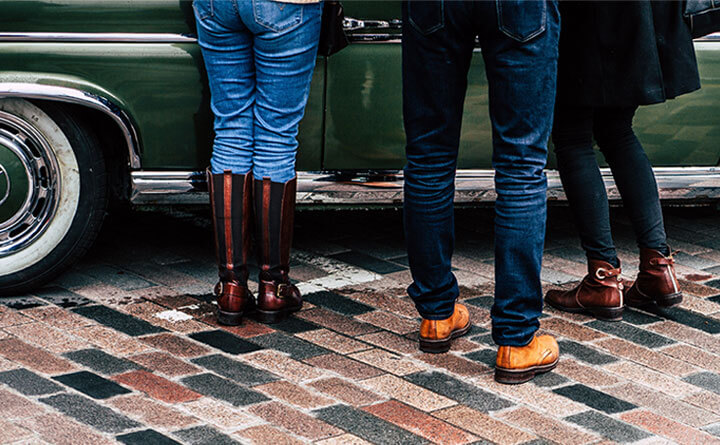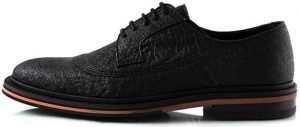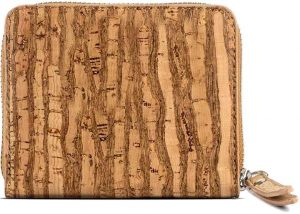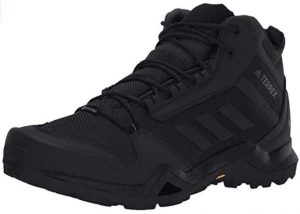Updated on December 18, 2024
What are vegan shoes?
Veganism and being vegan is the practice of completely abstaining from, or reducing as much as possible, the use of animal products. A big part of veganism is dietary. When someone says they are vegan, they most probably abstain from consuming meat, milk, eggs and cheese. However, veganism is more than a dietary preference, it can be a lifestyle to some people.
Veganism also plays a part in a person’s life when it comes to fashion and clothing. Vegans abstain from buying products that contain animal products, such as leather boots, and will refrain from using products that were tested on animals. A vegan shoe is one made without the use of animal products, such as leather, wool, or fur. Traditional shoe-making materials that are not vegan can include leather, suede, fur, wool and animal-based glues.
In the recent years, companies that were traditionally using animal products in their manufacturing process of their footwear, such as Nike, Timberland and Adidas, started using materials made without animal products to create new vegan shoes and boots.
List of Vegan Materials
Here’s a list of vegan materials commonly used in the manufacturing process of footwear and fashion accessories, separated in two categories, plant-based and plastic-based materials. The list is not exhaustive, meaning it will not contain all the materials used in the manufacturing process of vegan footwear and accessories, but it will include the most popular and commercially available ones.
Plant-based:
- Viscose: Natural fiber derived from cellulose used as a silk substitute
- Hemp Fiber: Lightweight, breathable fiber made from hemp
- Bamboo: Natural fibers usually labeled as viscose rayon
- Piñatex: Textile made from pineapple leaf fiber and petrol resin
Vegan Piñatex Oxford Shoes
- Natural Rubber: Natural material harvested from the rubber tree
- Linen: Breathable textile made from the fibers of the flax plant
- Canvas: Durable woven fabric made from cotton or linen
- Cork: Impermeable material harvested from cork trees
Small Women’s Cork Wallet with Zipper
- Denim: Sturdy cotton textile, often used in the production of jeans
- Rayon: Synthetic fiber made from regenerated cellulose
- Cotton: Natural cellulose fiber that grows on cotton plant
Plastic-based:
- Polyurethane (PU): A synthetic resin that is made to look like leather
- Polyvinyl Chloride (PVC): Strong synthetic thermoplastic polymer
- Polyester: Plastic commonly used in synthetic clothing and shoes
- Gore-Tex: Fabric membrane composed of PTFE, also known as Teflon
Vegan Hiking Shoes made with Gore-Tex
- Nylon: Silk-like thermoplastic, generally made from petroleum
- Acrylic: Synthetic fabric made from a polymer often used as faux fur
- Spandex: Elastic synthetic fiber also known as Lycra or elastane
- Microfiber: Elastic synthetic fiber frequently used for athletic wear
- Ultrasuede: Synthetic ultra-microfiber fabric, substitute for suede
What is vegan leather?
Vegan leather is a material that is meant to look like genuine leather, but is made from vegan materials, synthetic or natural, instead of animal skins. The most common types of vegan leather are polyurethane, also known as PU, PU leather, or pleather (sometimes referring to plastic leather), and polyvinyl chloride, also known as PVC, due to these materials’ shine and feel.
Vegan leather is sold under a lot of different names, including faux leather, or fake leather. However, the only true way of knowing if the shoes you are buying are made from vegan materials is to contact the company manufacturing the shoes and get a direct confirmation from the source.
There is a lack of standardization of terms used in the fashion industry regarding vegan leather, which can lead to confusion and deceptive tactics from some less reputable companies. One example is bicast PU leather (not vegan), which is a base layer of genuine leather coated with a top layer of PU leather to reinforce it and make it more durable. However, the genuine leather in the product no longer makes it vegan.
How to tell that a shoe is vegan?
If you are shopping online, an easy way to tell if a shoe is vegan or not is by looking at the materials listed in the manufacturing of the shoe. Sellers don’t always list out all of the materials, and you might have to do some extra digging by searching for the exact model on other websites or on the manufacturer’s website.
If you are shopping in-store, shoes will more often than not have a little sticker on them, either on the inside of the shoe on the sole, on the bottom of the shoe, or on the tongue of the shoe. The sticker will have symbols representing the types of materials the shoe is made of. Here are the symbols you need to look out for:
![]()
The diamond shape often means that the material is some sort of plastic, such as PVC or PU. The woven fabric symbol represents textile materials, such as cotton or canvas.
If you are looking for companies and sellers of vegan footwear, we have an extensive list of vegan shoes companies, sorted by price range. We are up to 80+ companies, and are expanding the list every year to include new startups, new technologies and advances in vegan and sustainable materials.
Is plastic vegan?
There is no one answer to the question “Is plastic vegan?”, as it is a philosophically-nuanced question, and it can be debated at length from multiple perspectives.
Veganism is a philosophy and a way of live that essentially guides certain choices and decisions people will make. The purchase and consumption of plastic products is one of the decisions vegans can develop a stance on.
Some vegans believe that, since it’s not made from livestock, plastic is completely vegan and an acceptable alternative to leather. For some people, different life circumstances and opportunities allow them to purchase products that are made by companies who invest more into research and development of plastic alternatives made from renewable resources and require less energy to produce. However, these companies are few and far between, which forces people to buy readily-accessible alternatives that might contain more plastic.
Other vegans will guide their decisions by reducing the harm and suffering inflicted on animals as much as possible through the reduced consumption of plastics. With our current technology, plastic is not biodegradable, and is dumped into oceans and landfills at the end of its lifecycle. This has tremendous negative effects on the environment and ends up killing wildlife, especially marine life, on a large scale.
Are vegan shoes durable?
Depending on the material and the quality of the manufacturing of the vegan shoes, they can be as durable as leather shoes if you take care of them and regularly clean them. Some vegan materials, such as vulcanized rubber, can be more durable and stronger than leather due to its waterproof and weatherproof properties. If your vegan shoes break at seams or have their sole come off, they could be repaired to extend their lifespan by a few years.
How long do vegan shoes last?
Vegan shoes made from “vegan leather”, such as PU or PVC, last on average two to five years. In comparison, low quality leather shoes usually last between 6 months and a few years of regular use.
Reduce, reuse, recycle.
Another possible alternative to purchasing a new pair of vegan shoes is to make do with your current pair just a bit longer. Reducing your consumption is a great way to lessen environmental impact on a small scale.
Buying used shoes is also a potentially viable solution to purchasing new vegan footwear. You can find great pairs of shoes that might fit your feet on online marketplaces or even in local stores that refurbish and resell previously-owned shoes.




